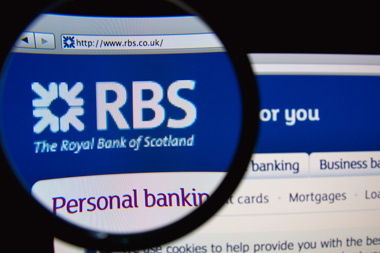RBS chiefs accused of "belated U-turn" on business lending evidence

Leading Tory MP criticises bank’s apparent backtrack on regrets that its restructuring division was described internally as a “profit centre”
Jermaine Haughton and Matt Packer
Treatment of SME bosses at the hands of the Royal Bank of Scotland (RBS) has come under the spotlight once again, with influential Tory MP Andrew Tyrie accusing the organisation of being “wilfully obtuse” with evidence it gave to a recent probe into its lending practices.
Last month, RBS executives were subject to scrutiny by MPs on the Treasury Select Committee over concerns that its Global Restructuring Group (GRG) business was improperly incentivised to maximise returns at the expense of struggling firms it was tasked with saving. In particular, a November 2013 report from government advisor Lawrence Tomlinson alleged that GRG had a habit of putting viable small businesses into default so the bank could seize their properties and sell them for a profit.
Further research from deputy Bank of England governor Sir Andrew Large backed Tomlinson’s findings, suggesting that significant conflicts of interest existed between RBS and its small-business clients because the bank described its GRG division as an “internal profit centre” – a financial term for a part of a business that is accounted for on a separate basis. During Treasury examination, RBS deputy chief exec Chris Sullivan repeatedly said that use of the term in reference to GRG was “totally inappropriate”.
Sullivan has now changed his position – agreeing that GRG is a profit centre and criticising MPs for using the term in the June session to suggest GRG “had a profit motive with a prejudice against our customers”.
Select Committee chair Tyrie signalled that he would write to RBS chairman Philip Hampton to complain about the “belated U-turn” the bank has apparently made on its original stance. “RBS had not objected to the term ‘profit centre’ when given extensive opportunity to comment on drafts of Sir Andrew’s report last year,” Tyrie said. “Yet it decided to contest the term in evidence to the committee – not only in a written statement in February, but also repeatedly in its public hearing in June.
He added: “Following the committee’s decision to write to Sir Andrew Large for clarification, RBS has now offered the committee what it euphemistically describes as ‘additional comments’. In fact, they have done a belated U-turn. It’s not as if the facts have changed. So it now appears that RBS has been wilfully obtuse with the committee.
“If this is how RBS deals with a parliamentary committee, how much can customers and regulators rely on it to be straightforward with them?”
RBS has declined to comment on Tyrie’s remarks. Today, though, campaign group Bully Banks weighed in on the controversy, with chairman Jeremy Roe saying: “I fail to understand how any senior manager at RBS could not know that GRG was a profit centre.”
Roe also drew attention to RBS’ move earlier this year to commission a so-called “independent review” of the Tomlinson report from solicitors Clifford Chance – a firm that counts RBS as a client and relies upon the bank for a large chunk of its business. The report found no evidence that RBS had engaged in systematic fraud against its business customers. “At the Treasury Select Committee,” Roe remarked, “Chris Sullivan stated that he had not seen a copy of that report prior to publication. He now says that he did see the report, and that he made a number of typographical comments.
“I don’t know what surprises me most. The first comment I’ll make is that it’s extraordinary that the deputy chief executive of RBS was so indifferent to the issues of thousands of his customers that he couldn’t remember whether he’d read it before publication or not. I don’t know whether I’m more surprised that the deputy chief executive of RBS was so unengaged with the issue that all he had to make were a few typographical comments. I read the report, and I put in a dozen pages of comments.
Roe added: “Perhaps I’m more bowled over by the fact that a major firm of solicitors could agree with RBS that it was putting together an independent report – and yet we have confirmation that the report was submitted to the [law firm’s] client for review. It’s an extraordinary sequence of admissions. What on Earth is the chairman of RBS doing, and what on Earth are the non-executives of RBS doing, to allow this to happen?”
For further insights on business finances, check out the CMI Checklist book Managing Finance.
Image of RBS website courtesy of Gil C / Shutterstock

Press & Media Enquiries
For more information or to request interviews, contact CMI's Press Team on 020 7421 2705 or email press.office@managers.org.uk


